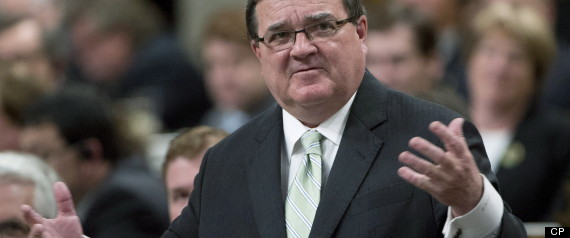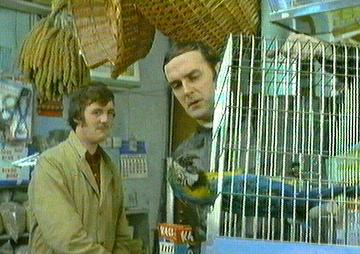This is a story I would love to see told on the big screen. It's one that, unfortunately, is of incredible relevance as we slip back into the moral nihilism and selfish hatred that catalyzed World War II and the Holocaust.
My grandfather's story of survival began in a plane over Normandy, wound through the fields of Occupied Europe and into the street of Paris before taking an unexpected segue into Buchenwald Concentration Camp. It's not a tale for the faint of heart, but then survival is never a pretty business.
Below is just the opening teaser; I have the entire treatment plus plenty of notes, contacts, references, so on and so forth. What I need is someone with the courage and resources to bring this story to life.
Over a black
screen:
“I pretended
not to have seen, I pretended not to have heard, because I didn’t want to be
responsible.”
-
Adalbert Lallier, Former SS Officer and retired
Concordia Economics professor
June 8th, 1944, 01:30 in the
morning. With the invasion of Normandy two
days ago, the Allied Forces have at last gained a toe-hold in Europe. Bombers are being sent over France to smash
Nazi depots and train stations, disrupting their supply lines to the front.
One of these, a Halifax bomber with a
Canadian crew, has been deployed to take out a rail yard near Paris. Compared to many of their previous targets, this
is a light assignment – the crew doesn’t expect any surprises.
They are wrong.
The Halifax’s four
engines rumble in the pre-dawn darkness. A voice whispers, “approaching target – get
ready.” The hum of the engines changes
pitch as the plane descends, and is joined by the explosive thuds of
anti-aircraft fire from the ground. The
muffled noises are swallowed by a near-to-ear eruption; the plane is hit.
The darkness is
broken by the blink of the pilot’s eyes.
The pilot is a young man, twenties – he turns his head left, craning to
see the impact site. His eyes widen as
he sees the entire port wing is on fire, and spewing black smoke. He curses.
Within the tight quarters of the plane – chaos. Airmen scream over the noise. Shouting to be heard over the ruckus, the
pilot gives the order to bail out even as he tries to put out the fires that
have sparked up.
Barely 21 years old,
wireless operator Ed Carter-Edwards from Smithville, Ontario throws on his
parachute pack and lines up at the hatch.
The man in front of him jumps – Ed freezes, stares blindly. The moment, the commotion around him – for
precious seconds, Ed is removed from everything, lost in his own mental space,
as if something is trying to hold him back.
Behind him, his fellow airman, Tom, shouts – something. When Ed doesn’t respond, Tom kicks Ed out of
the hatch. The sudden drop brings Ed
back to his senses; he shakes off the shock and looks around as the others pull
their ripcords. The blazing Halifax
lights up the sky as it drops, a smoke trail extending behind it. Nazi fire bursts around the former occupants
of the downed bomber. Young Ed pulls
open his own chute, which he has not tightened as well as he should – the force
as he’s pulled upward nearly splits him in half. Ed watches wide-eyed as, from the darkness,
the plane that brought his down – a Focke-Wulf 190 – flies past like a shark
circling its prey. Looking down, the Canadian sees the outline of
the River Seine, and nearby, the lights of a small village. The Halifax crashes into the ground, sending
up a fireball as the fuel and bombs ignite.
The young airman
touches down hard in a pitch-black field, cracking his chin with his knees. He has not been trained on how to land. In the distance, the wreckage of his plane
burns, a black plume of smoke reaching up towards the starless sky. He’s deep in the French countryside, far
behind enemy lines. Completely alone, he
realizes the Nazis must already be on the look-out for survivors. Ed separates himself from his parachute,
wraps it up to stow away, all the while scanning the horizon, trying to guess
where his fellow airmen might have landed.
Ed double-checks that he has his emergency kit, then takes off at a run
for the nearby forest. He stops –
running parallel to him but 20 metres off, silhouetted by the firelight from
the plane, is another figure.
For a second, Ed
stands, quietly. Hopefully, the gunner figures
it must be one of the boys, and shouts out, “Who is it? It’s Ed!”
A relieved voice calls back, “It’s Tom!”
The tension is immediately cut in half – even one friendly face makes a
difference. They run to each other,
slap each other on the shoulders – “Ed, what happened to you up there?” “I dunno – I just.. froze. Hey, we can talk later – let’s get out of
here”.
They make for the
woods. Under the cover of trees, they
stow their chutes in the bushes. The
young men run through the woods in the direction of the village they saw from
above. They hear voices, freeze. When the voices have passed on, the men
decided to spread out – that way, if one gets caught, they can warn the
other. Tom runs first; Ed counts to ten,
then takes off after him. To the right,
a light comes on, blasting the woods in a white-blue glow; it’s followed by
loud voices. Ed stumbles, drops. Waits as long as he dares, then, running flat
out, he rushes after his friend. In the
darkness, Ed comes to a fork in the road.
He looks to the
left. Looks to the right. Back.
In as loud as a voice as he dares, Ed calls out Tom’s name. No answer.
Again – silence. Cursing under
his breath, the lights and noise still behind him, Ed takes the right-handed
path. It’s a choice he will live to
regret.

















.jpg)
















